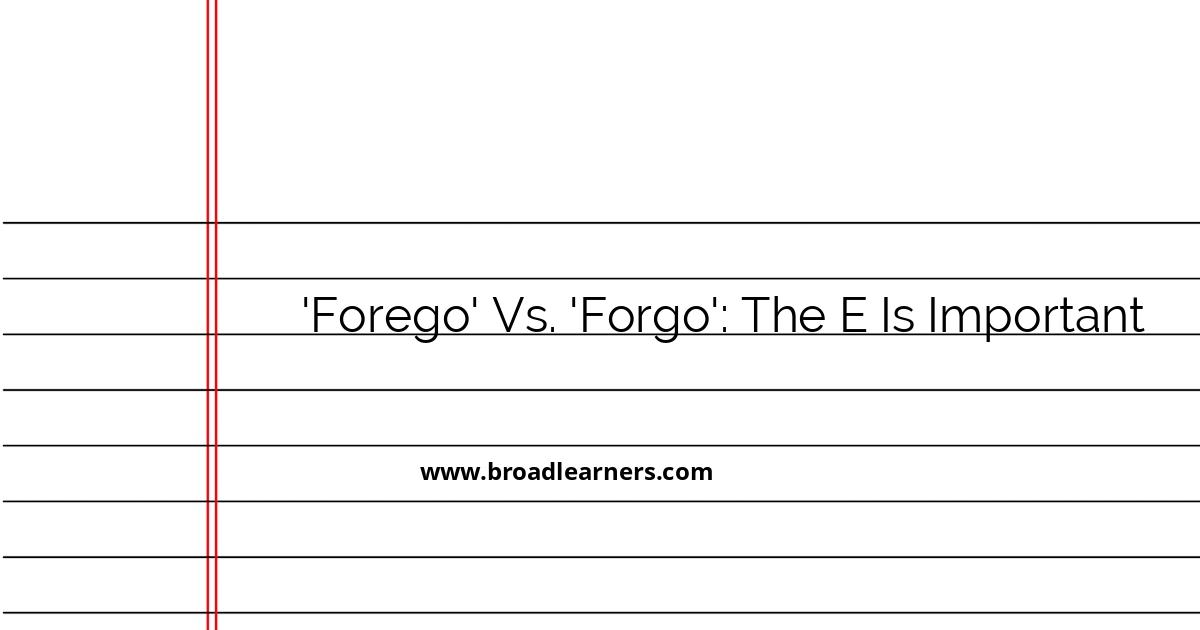The English language is rife with words that sound similar but have different meanings, which can often lead to confusion. Two such words are 'forego' and 'forgo'. Despite their similarity in pronunciation, these words have distinct meanings and uses. In this article, we will discuss their differences in detail, helping you understand when to use each word appropriately.
- Forego:
- 'Forego' means to go before or precede. It is often used in a more formal or literary context to convey the idea of something that comes in advance or happens earlier. This word is less commonly used in everyday language.
- Forgo:
- 'Forgo' means to do without or to abstain from something. This word has a more common usage, particularly when discussing the choice to refuse or omit something by choice or out of necessity.
Let us explore each word with examples for better understanding:
Usage of 'Forego'
The word 'forego' is typically used when referring to something that occurs before another thing in time or sequence. Here are some examples:
- Example 1: The introduction will forego the main speech.
This sentence indicates that the introduction will come before the main speech.
- Example 2: In the book, the prologue foregoes the first chapter.
Here, 'forego' implies that the prologue is presented before the first chapter.
Usage of 'Forgo'
On the other hand, 'forgo' is employed when one chooses to omit or abstain from something. Take a look at these examples:
- Example 1: I decided to forgo dessert to save on calories.
In this case, 'forgo' means the person chose not to have dessert.
- Example 2: Due to financial constraints, they had to forgo their vacation plans.
This sentence indicates that they chose or were compelled to give up going on vacation.
Remember, the distinction between 'forego' and 'forgo' hinges on the presence or absence of the letter 'e'. While 'forego' relates to precedence, 'forgo' pertains to relinquishment.
In summary, mastering the use of 'forego' versus 'forgo' entails understanding their distinct meanings and contexts. Employ 'forego' when referencing something preceding another event or occurrence, and opt for 'forgo' when expressing the decision to abstain from something. Your precise application of these terms will enhance clarity and understanding in communication.
By recognizing these differences, you can confidently use both words in their correct contexts, thus improving both your written and spoken communication skills.

Did I miss anything? Respond below